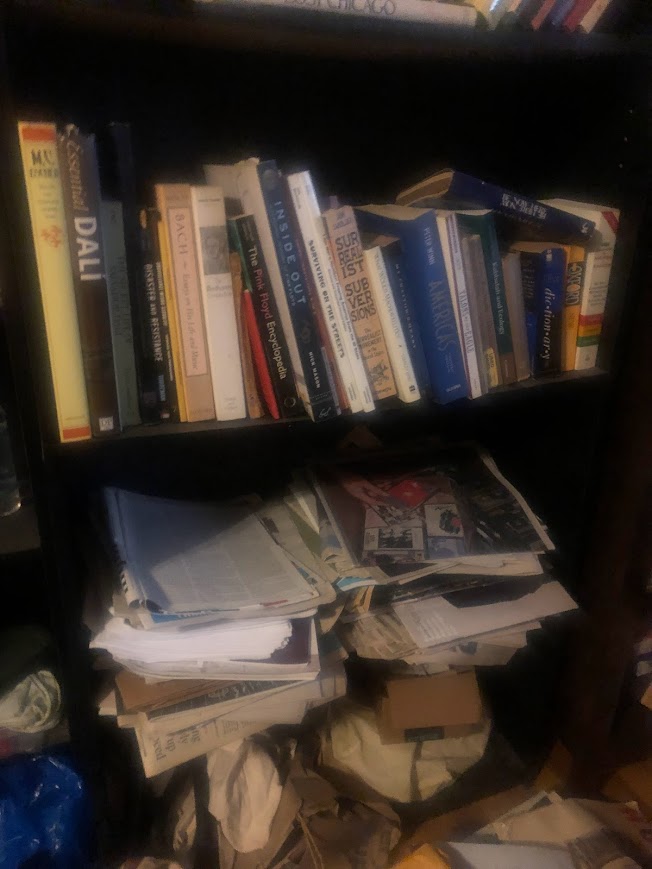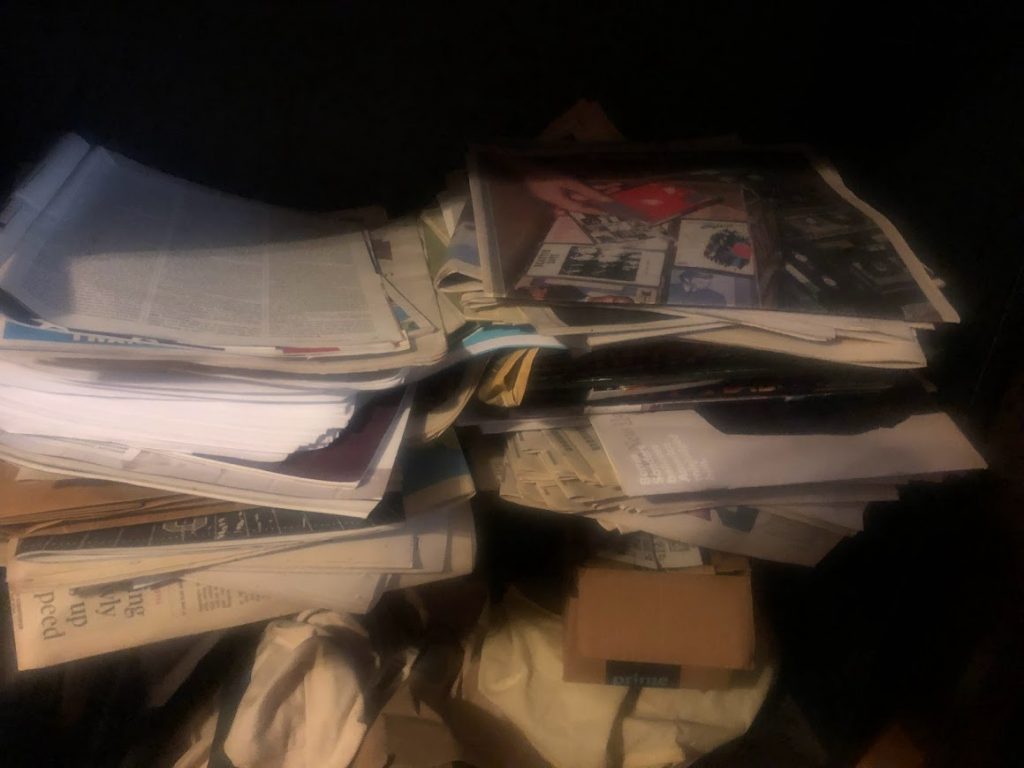Examine the items in your immediate environment. Are there any particular things that you seem to have a significant amount of? (Include photos if possible!) Could someone make the argument that this is a form of hoarding? Are the existence of these items the result of a lack of cleaning routines, or is there a more compelling explanation?
I want to start off my blog post with getting the most burning thing off of my chest first, which is the DSM definition of “Hoarding Disorder.” The last of their criteria, in particular, is important to me:
F. The hoarding is not better explained by the symptoms of another mental disorder (e.g.,
obsessions in obsessive-compulsive disorder, decreased energy in major depressive
disorder, delusions in schizophrenia or another psychotic disorder, cognitive deficits in
major neurocognitive disorder, restricted interests in autism spectrum disorder).
I have a very silly brain. I’ve been diagnosed with OCD (not OCPD, which is associated with “neatness” and “perfectionism,”) and have had with me many obsessions throughout my short life; I’ve been diagnosed with major depressive disorder and bipolar type II, so I’ve had many periods where I have severely decreased energy; I’ve been diagnosed with the full scale of ADHD (both ADD and HD), so I certainly am not short of cognitive deficits (though I am short); and to top it all off, I’ve been diagnosed with autism spectrum disorder (with the most problematic terming they could have given it, “High Functioning Autism Spectrum Disorder, Formerly Known As Asperger Syndrome”), so my interests may indeed be quite restricted at times.
With this all in mind (pun intended), definitionally, I am essentially incapable of exhibiting Hoarding Disorder, yet have plenty of comorbid hoarding “behaviors.” Weird how that works.
In terms of how I see myself exhibiting these behaviors, looking around my room I can immediately gauge 4 of my collections:
1) My playing cards, 2) A fraction of my legos, 3) My books, 4) The boxes from all of my family’s Apple devices
I call them collections because yes, I went out and collected them, but the term also implies a certain level of intention and sentiment. These items are important to me and contrary to the idea that they are the result of “lack of cleaning routines,” are curated and handled with care as to keep them clean and/or in good condition. However, if I had to rank them from least to most “hoarding like,” it would probably be as follows:
1) My books – this collection contains vast amounts of knowledge, information, and creativity, and can be shared for generations, but at the end of the day, most of the time they will just be piles of paper and ink sitting on my shelf.
2) My legos – each one shows a sense of accomplishment and each one is unique and took much time and effort to create, and their uniqueness comes with a variation of functions, but will have significantly less “future use” than the books, alongside the devastation that plastics have on the environment.
3) My playing cards – similarly to my books, most of the time they will just be piles of paper and ink sitting on my shelf. While each of the decks carries a unique art style to it, and collecting them as pieces of art is massively what has drawn me to them, all of the decks serve the same functional purpose. Because of this functional similarity, the collection feels more “excessive” to me.
4) My Apple boxes – these are, by most standards, considered to be waste. They are simply the packaging used to ship, protect, and present the products inside of them, and once those products have been taken out, they are just empty packaging waiting to be tossed. I’ve held on to them because of the sentiment they hold with them – getting an Apple product is always a big deal, they’re not cheap and they go out of their way to make it look fancy. I enjoy having a reminder of that, but of the 4 collections I’ve shown, it is the closest to what I would consider “pure garbage piling up.”





